Key Takeaways
- Your summer BBQ doesn’t have to derail your health goals - with a few smart choices, you can enjoy classic flavors while supporting your nutrition and health.
- Build balanced meals with lean proteins, colorful veggies, whole grain sides, and smart desserts.
- Hydration is key, but choose low-sugar beverage options.
{{mid-cta}}
Summer is right around the corner. That means time at the pool, summer vacations, and cookouts! Focusing on your health doesn’t mean you have to give up your favorite summer foods. With some planning, you can make nutritious choices while enjoying traditional BBQ flavors. The grill is an excellent tool for preparing delicious and healthy meals that are low-fat and packed with nutrient-rich vegetables. By making smart choices, you can have your BBQ - and eat it too. Check out our top tips to enhance your summer cookout nutrition below!
Choosing Lean Proteins for the Grill
.webp)
Common proteins are the centerpiece of many cookouts, which can be high in saturated fat or marinated in high-calorie sauces that don’t always support health goals. Opt for low-fat grilling options like chicken breast or turkey. Fish, like salmon, is excellent on the grill and provides a good source of anti-inflammatory omega-3 fats. Don’t neglect plant-based proteins, either. Tofu is a complete plant protein. It contains all the essential amino acids that most plant-based proteins don’t, is low in calories, and rich in calcium, iron, and other minerals. Even better, it’s great on the grill. Lentils can make a great vegetarian sloppy Joe - just be mindful of the extra calories in the barbecue sauce.
While these foods are high in protein, preparation can often lead to unwanted excess calories. Rather than relying on sugary sauces, make a healthy BBQ sauce using citrus or vinegar as a base and limiting added oils, which are calorie-dense. A longer marinating time (4-24 hours) allows flavor to soak in more deeply, so less sauce is needed for the same delicious taste.
Incorporating a Variety of Vegetables
It’s no secret that vegetables are good for you! Research consistently shows that people who eat more fruits and veggies have a lower risk of death from cardiovascular disease, cancer, and other causes.1 Veggies are packed with fiber, vitamins, minerals, and phytonutrients, compounds like beta-carotene or flavonoids with health-promoting properties. Different colored veggies tend to have higher amounts of certain nutrients, so eating various colors helps ensure you get as many nutrients as possible. Eating the rainbow during the summer, when so many vegetables are in season, is easy. Aim to fill half your plate with veggies.
Thanks to the grill, veggies don’t have to be boring. The high heat causes sugars and proteins to react in what’s known as the Maillard reaction - caramelizing the natural sugars, bringing out their sweetness, and enhancing their flavors. When it comes to grilled vegetables, the world is your oyster (or oyster mushroom), but here are some of our favorite ways to prepare delicious and nutritious veggies:
- Vegetable kabobs: Nothing says summer like a veggie skewer! Stack your favorite veggies (we love peppers, zucchini, and mushrooms) onto a skewer and place them straight onto the grill for a smoky flavor.
- Corn on the cob: This is a classic for a reason. Grill corn in the husk for a softer texture and sweeter flavor or without the husk for a smokier flavor.
- Grilled salads: Who says salads have to be cold? Slice romaine lettuce into wedges and place on the grill. Enjoy with lemon juice, a drizzle of olive oil, a pinch of shredded parmesan, or top with grilled veggies from a skewer.
Opting for Whole-Grain and Low-Carb Sides

We hope you saved room for sides! We all love a good pasta salad, but opting for a whole grain side instead can help maintain stable blood sugar levels2 - and as a bonus, can help you meet your daily needs for fiber and B vitamins. Here are some smart (and delicious) healthy summer side swaps to level up your BBQ spread:
- Swap your traditional bun for a whole wheat bun. Whole wheat is higher in fiber, B vitamins, and iron.
- Make pasta salad with lentil pasta and Greek yogurt-based sauce. Just as creamy but with extra protein and fiber!
- Use vinegar instead of mayonnaise in your coleslaw to reduce fat.
- Instead of macaroni salad, try a summery cauliflower rice or quinoa salad.
Preparing Lighter Desserts
You don’t have to skip dessert if you’re on a health journey. Traditional desserts can be high in fat and added sugar. While these are fine in moderation, alternatives can satisfy sweet cravings while offering nutritional benefits. Check out these ideas for light summer desserts to get you started:
- Fruit salads: Summer is a great time to enjoy a variety of fresh, in-season fruits, from cherries to blackberries to melon and beyond. Fruit salads don’t have to be boring. Consider topping with chopped nuts (packed with protein and healthy fats), chia seeds (a source of omega-3 fats), or toasted oats (a whole grain full of fiber) and drizzle with a homemade dressing of Greek yogurt, honey, and vanilla.
- Grilled fruit skewers: Don’t let the fruits miss out on all the fun! Grilling fruits caramelizes their natural sugars, making the flavor pop. Watermelon, peaches, and pineapple make great dessert skewers. Serve with a fruit dip for extra sweetness.
- Yogurt parfaits: When topped with fruits, yogurt parfaits offer a tasty alternative to traditional desserts and are loaded with protein, calcium, and fiber. Top with homemade low-sugar granola for extra crunch.
- Low-sugar ice cream or popsicles: Making your favorite dessert from scratch gives you control over the amount of sugar included. Homemade popsicles are a great way to sneak in extra servings of fruits or even protein!
Utilizing Healthy Grilling Techniques
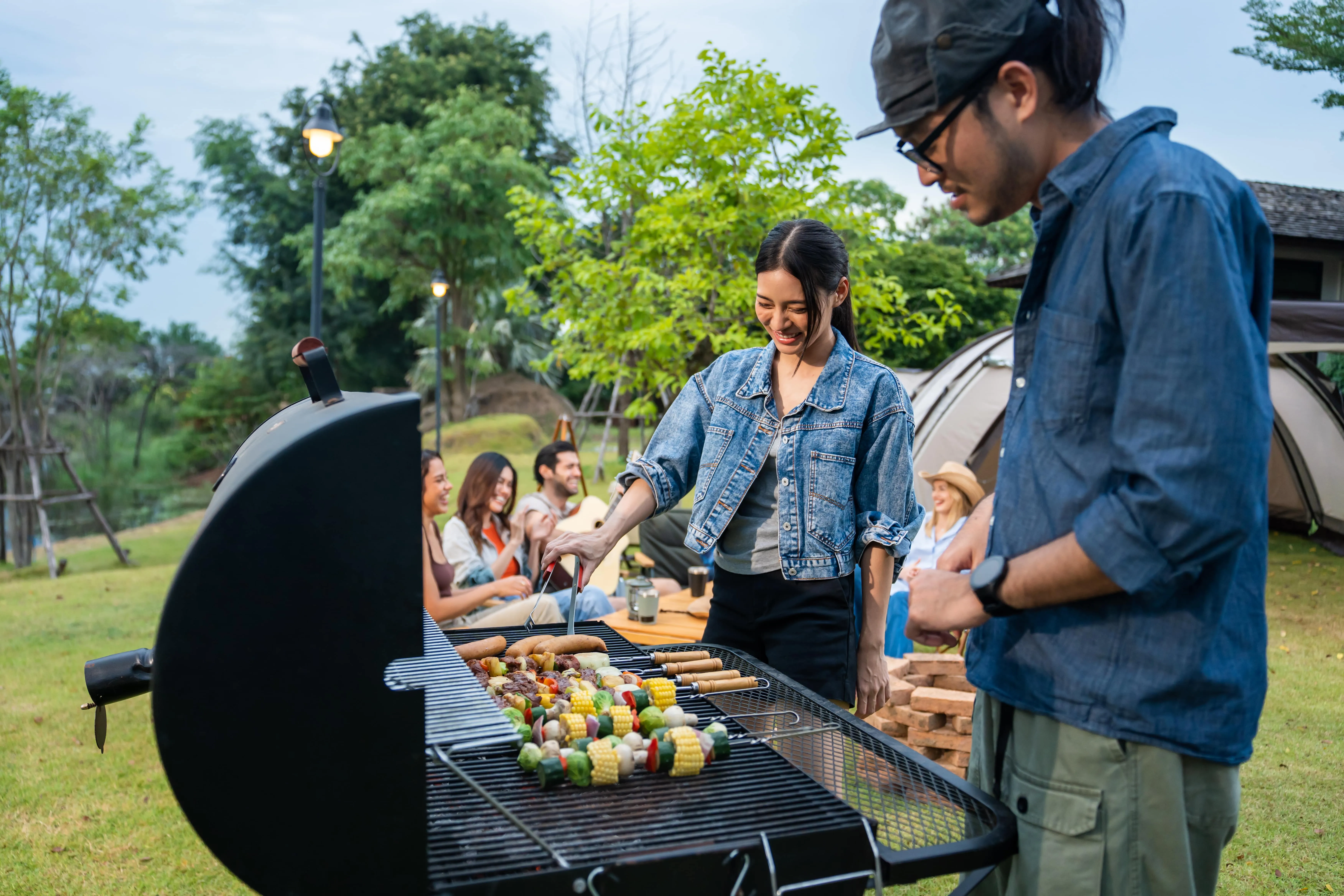
More than the nutrients in your food, your grilling technique can also influence your health! Because of the high heat, grilling can create harmful compounds like heterocyclic amines (HCAs) and polycyclic aromatic hydrocarbons (PAHs). In animal studies, high doses of HCAs and PAHs contribute to the development of different cancers.3 Research in humans is still limited, but it’s easy to avoid these HCAs and PAHs:
- Choose lean meats and trim visible fat. PAHs are formed when fat drippings fall on an open flame. Less fat in your food means less fat to form PAHs.
- Par-cook meat: Cooking meat before putting it on the grill reduces exposure to high heat (and speeds up grill time).
- Avoid charring: Charred areas are high in HCAs and PAHs. Flipping meat before it chars reduces your risk. Be sure to use a meat thermometer to ensure it’s fully cooked.
- Clean your grill grates regularly: Built-up charring on the grill can transfer to food.
- Use lower heat: HCAs and PAHs form at high heat (above 300°F), and cooking at a lower temperature minimizes their production.
- Use a thermometer: A thermometer can prevent meat from getting too hot by allowing you to remove it from the grill once it reaches an appropriate internal temperature.
Selecting Healthier Beverages
Hydration during the summer is critical, especially when spending time in the heat or enjoying salty foods. While soda, sweet tea, and lemonade are common staples, they can be a sneaky source of excess sugar and calories, contributing to blood sugar spikes without lasting hydration. Instead, prioritize refreshing, low-sugar options that support hydration but feel fun and festive.
Water is the best option for day-to-day hydration. To jazz it up, try fruit-infused water. To do this, chop fruits, vegetables, and herbs of your choice (some ideas to get you started: watermelon, strawberries, cucumber, lemon, mint, basil). Add to a pitcher of water and refrigerate overnight. The longer it cools, the more flavor will leech out of the fruits and into the water. Other low-calorie drink options include unsweetened tea (with optional lemon or mint), kombucha, or coconut water.
The Bottom Line
You don’t have to give up your health goals to have fun this summer! Grilling is a great way to prepare nutritious mains and sides; choose lean proteins, lots of veggies, whole-grain sides, and smart drinks. By making intentional swaps, you can build a healthy and delicious plate at your next BBQ.
Using a CGM with Signos: Real-Time Data, Backed by AI
Signos pairs a real-time glucose biosensor with AI trained on tens of millions of data points to deliver personalized, science-backed guidance for weight management and health. See exactly how your body responds, and take action.
Learn how it works. Ready to get started? Join now.
Topics discussed in this article:
References
- Wang DD, Li Y, Bhupathiraju SN, et al. Fruit and vegetable intake and mortality: results from 2 prospective cohort studies of US men and women and a meta-analysis of 26 cohort studies. Circulation. 2021;143(17).
- Musa-Veloso K, Poon T, Harkness L, O’Shea M, Chu Y. The effects of whole-grain compared with refined wheat, rice, and rye on the postprandial blood glucose response: a systematic review and meta-analysis of randomized controlled trials. Am J Clin Nutr. 2018;108(4):759-774.
- Sugimura T, Wakabayashi K, Nakagama H, Nagao M. Heterocyclic amines: mutagens/carcinogens produced during cooking of meat and fish. Cancer Sci. 2004;95(4):290-299.


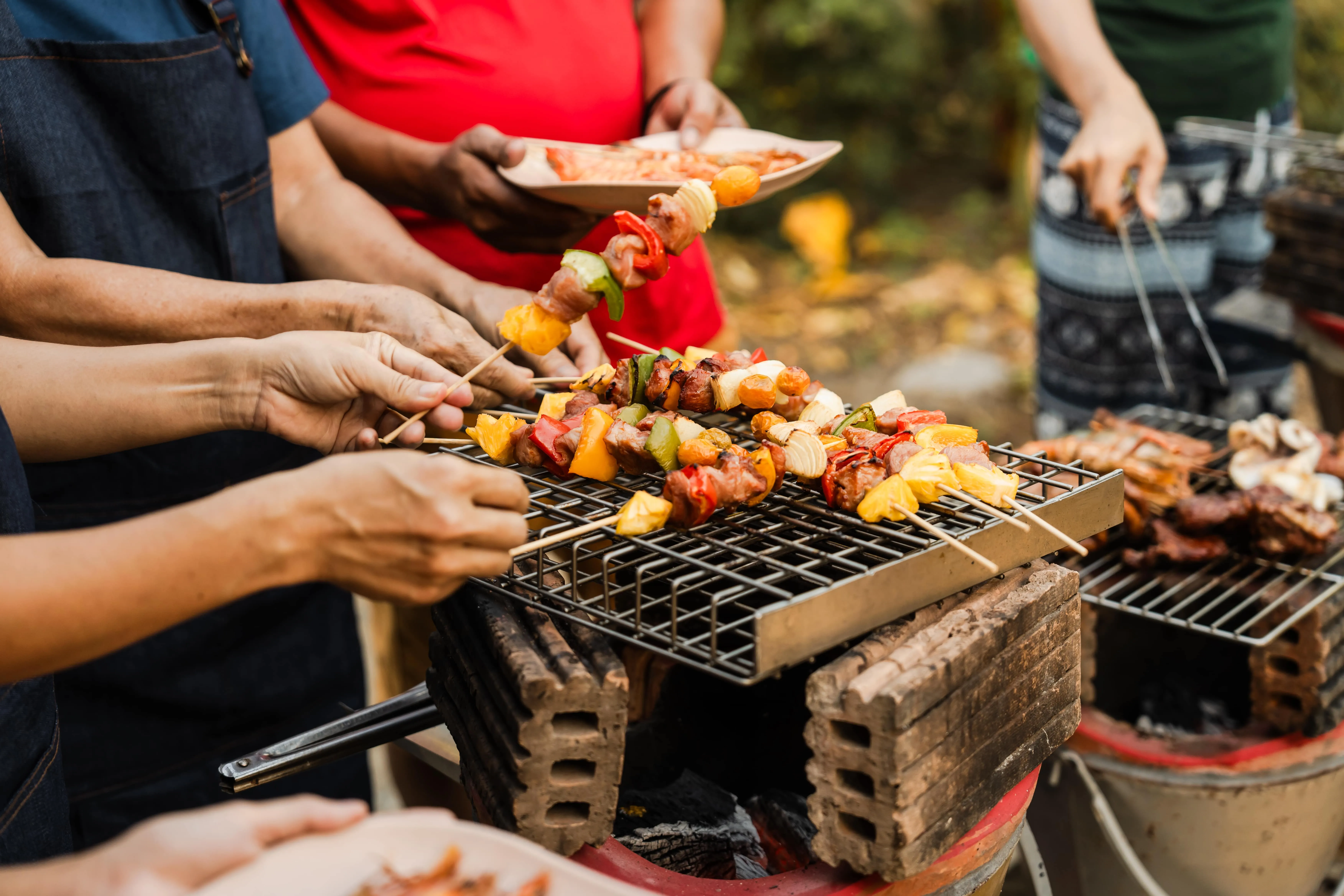

.svg)


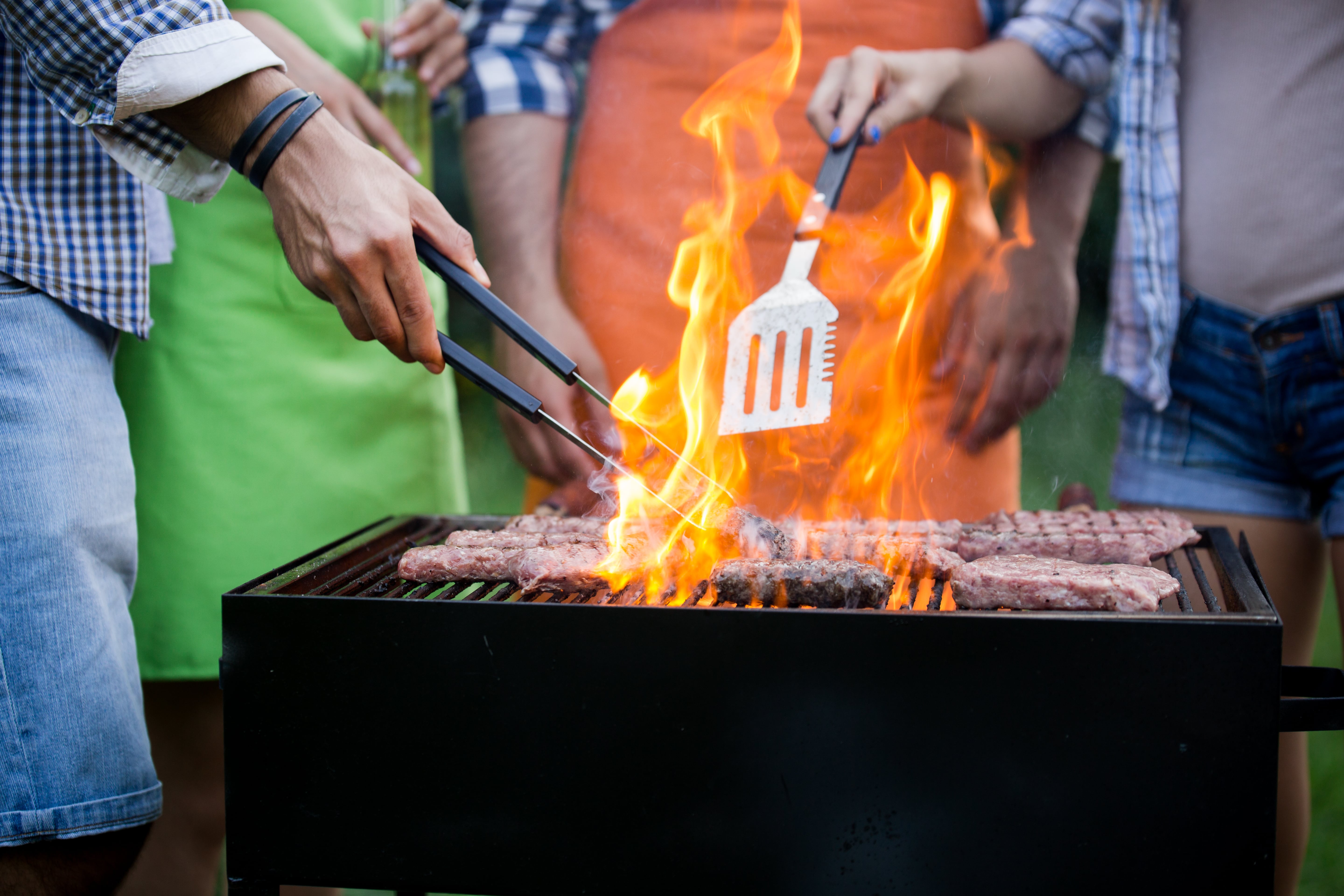


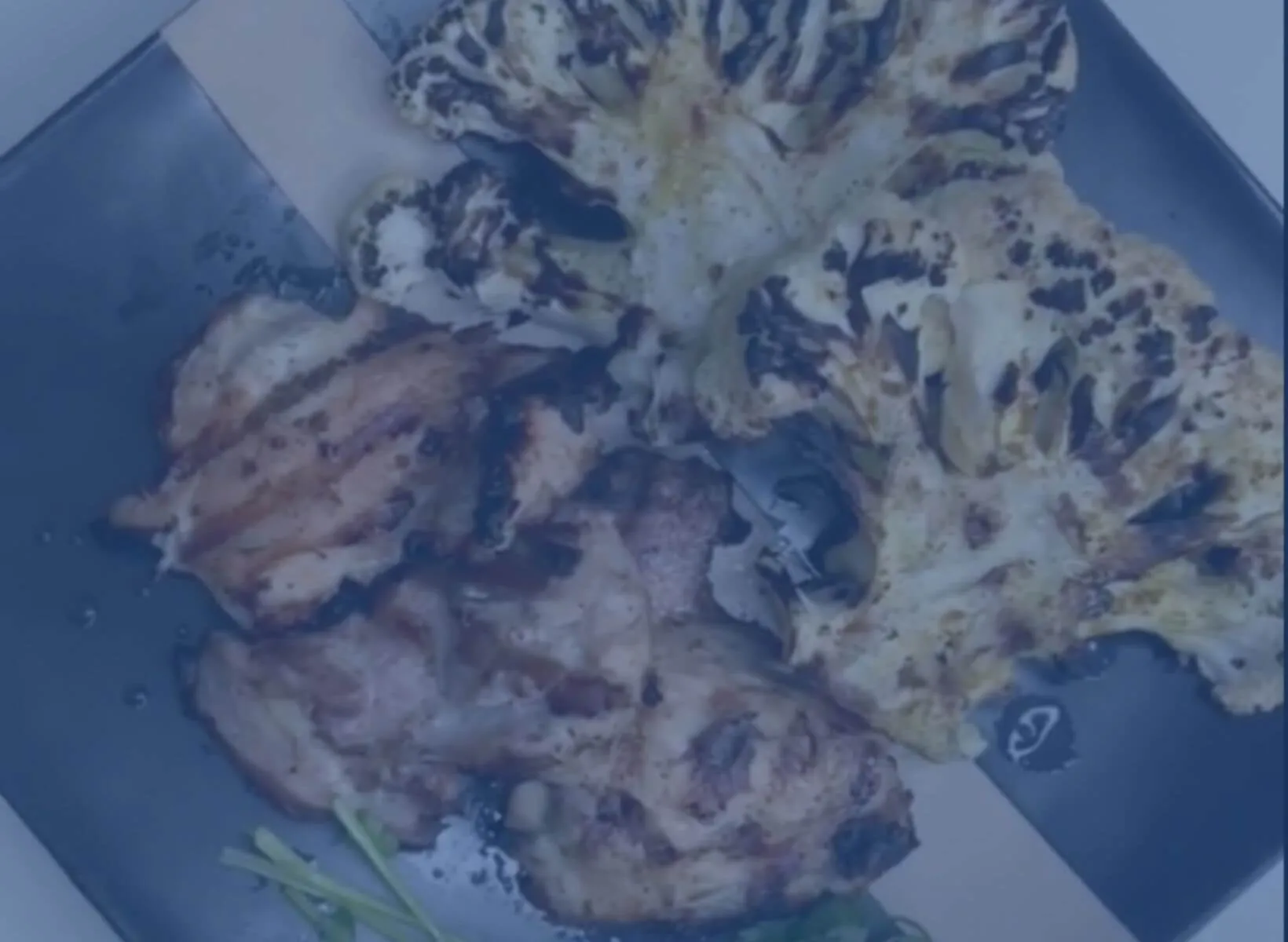

.webp)

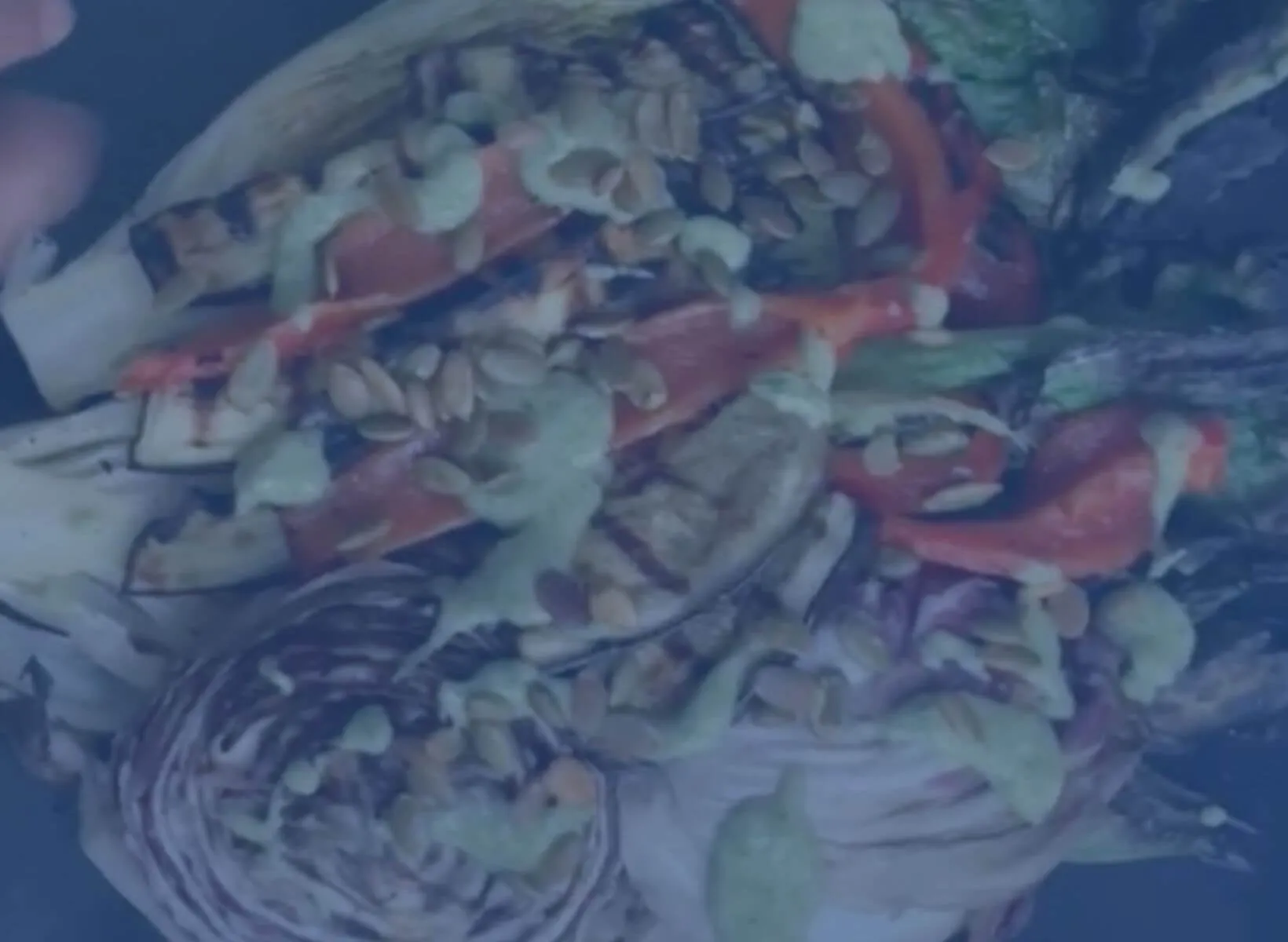
.svg)
.svg)
.svg)
.svg)
.svg)
.svg)
.svg)
